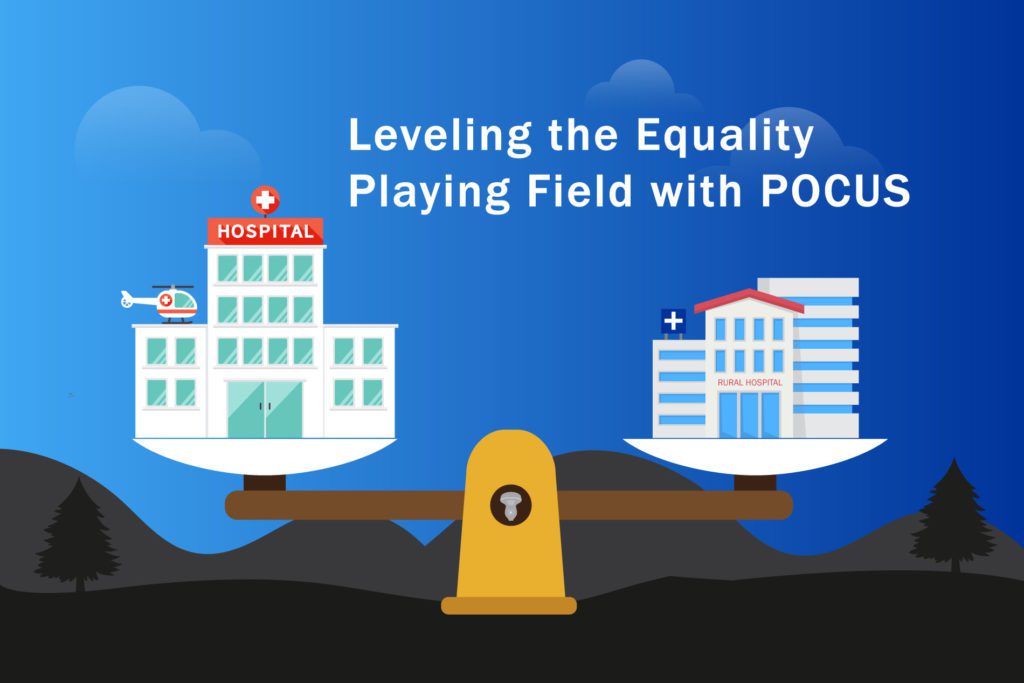As we come face-to-face globally in defining true equality for all, we can’t overlook the different forms injustice takes on. Prejudice, though there is no denying that it is indeed involved, isn’t secluded to one’s appearance. Various factors can create a life that seems imbalanced or insufficient compared to our counterparts. For instance, today, in medicine, our location is an element that determines the type of care we may or may not receive in regards to our health.

When a particular region of the world experiences differences in health status compared to the overall population, this is known as health disparities. Inequality occurs in the level and quality of healthcare provided to those in such parts of the globe.
These communities, known as rural, suffer from geographic isolation, lower socioeconomic status, increased health risk behaviors, limited access to medical specialists, and inadequate employment opportunities. All of which leads to higher incidences of disease, disability, mortality rates, pain, and lower life expectancies.
There is recognition of the challenges and barriers faced by the rural populations among the medical community, and advocates have come alongside us to rage war against health inequality. Membership organizations, agencies on both the federal and state levels, and foundations continue efforts towards eliminating the disparities that plague rural regions and improve the health and overall well-being of its citizens.
Assistance is anything from the provision of funding, information, and technical support to policymakers creating plans to help generate awareness of the issues affecting the population’s health and healthcare system in these communities. In addition to these modes of aid, the growth of point-of-care ultrasound (POCUS) is stepping in to sever the connection between good health and where we live.
POCUS’s potential value may be most impactful in rural environments due to such heightened limitations. The portability of the technology and its capacity to provide a prompt diagnosis mitigates some of the healthcare difficulties and challenges of remote settings. With minimal, yet thorough POCUS training, local medical practitioners can begin to remove the healthcare stigma surrounding rural locations.
A rural physician, practicing in Fernie, BC, Dr. Virginia Robinson, is leading the charge in getting 50 Clarius handheld ultrasound scanners to resource-limited regions in Canada.1 With this initiative, Dr. Robinson seeks to shed light on how much POCUS can empower and redirect medical care in rural areas. “Once the rural docs start using ultrasound, I think they’ll realize that the number of patients they need to transfer to a larger center will go way down because they can verify what is going on first. Is the person in heart failure or not? Do they have an ectopic pregnancy or not? If they get a positive finding, they can expedite transfer via air ambulance to the right type of care facility instead of sending the patient to a tertiary care center via ambulance,” she explains.
Canada’s Digital Technology Supercluster COVID-19 program is helping to make Robinson’s vision a reality. The 2020 pandemic has walloped rural communities already impacted by so much lack, and it became vital to expedite the training of practitioners serving this population. POCUS has proven to be a reliable tool to diagnose various conditions in real-time, including pneumonia, from suspected COVID-19. It is not a replacement of the official COVID-19 test, but an augment that allows treatment to begin immediately if imaging results indicate the virus’s presence. It saves both patients and healthcare providers from having to wait two to six days for swab results, reducing the window between analysis, creation, and implementation of a care plan.
Here is just one example of the great work done via POCUS. Possessing a plethora of benefits, we must still keep one note in mind. POCUS is user-dependent and does require proper training and education to deploy accurately and efficiently. Rural physicians do agree on its impact, but concerns do linger in the absence of unified POCUS standards and quality assurance systems.
The needs of our rural neighbors should drive and give us even more reason to progress toward developing global standards that encourage POCUS usage. It is a modality with the power to produce a change for those whose quality of life desperately requires it.
Learn more at the POCUS Certification Academy’sTM website about how to engage in and push for POCUS standards. Let’s lead us all into a world where healthcare is experienced and provided on an equal playing field.
References
- 2020, June 18. BC Rural Physicians Participate in Handheld PoCUS Project. Retrieved July 23, 2020, from https://clarius.com/bc-rural-physicians-participate-in-handheld-pocus-project/.
Ready to get started on your POCUS journey? Check out our many certificates and certifications here.





















